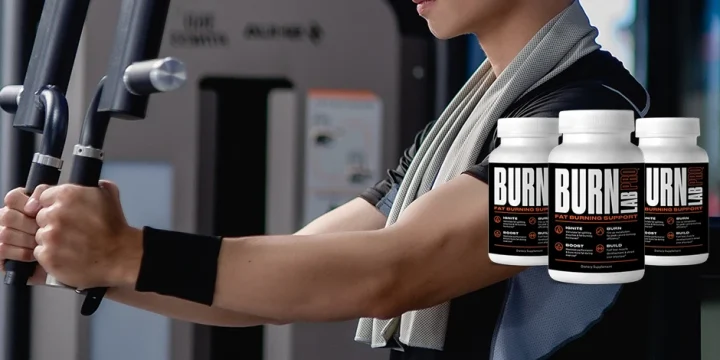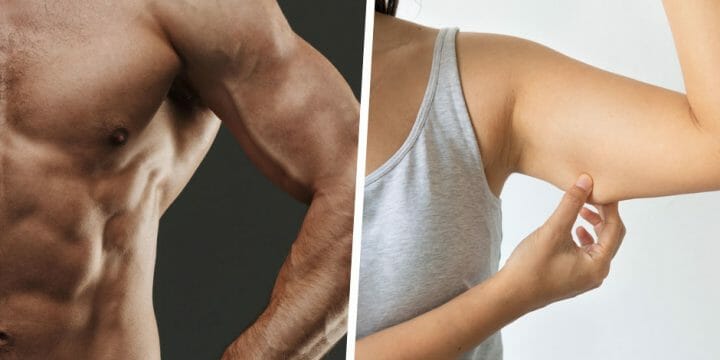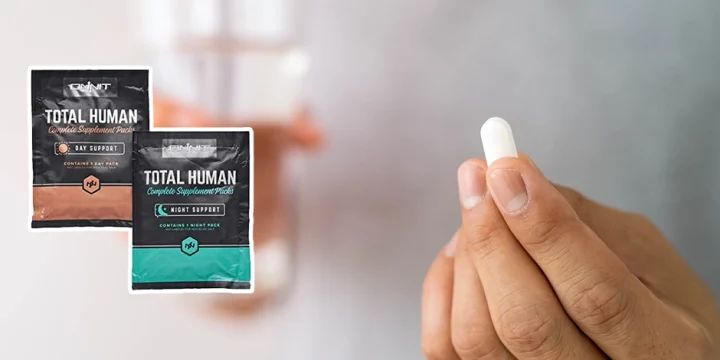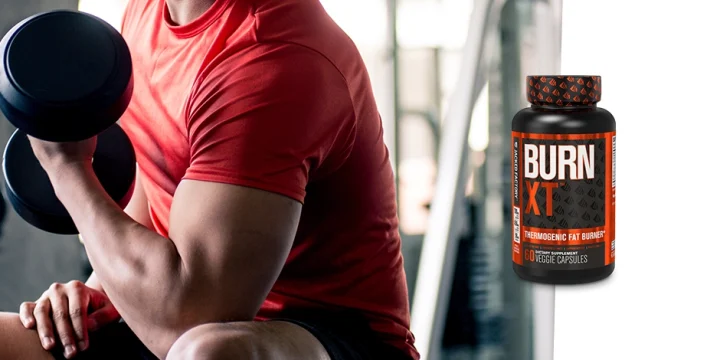Many of my first-time clients on a weight loss journey want to know if lifting weights will help them shed pounds.
As a coach, I spend a lot of time instructing people in the gym, and their changes in body fat percentage and composition were a direct result of weight training.
To explain the mechanism behind it, I sat with a physician friend and spent days researching this topic in great detail.
Let’s see if you should lift heavy to lose body fat.
Quick Summary
- Weight lifting is an effective strategy for burning fat and building muscle simultaneously, as it increases resting metabolic rate and promotes fat loss.
- Weight lifting uses fat calories as extra fuel for muscle growth, making it an efficient way to tap into body fat for energy.
- According to Nutrition Reviews, strength training workouts that involve stop-start weight training exercises also burn through muscular glycogen, further aiding in fat loss.
- In my opinion, weight lifting not only transforms your body but also positively impacts your overall well-being, making it an essential component of any successful fat loss journey.
Weight Lifting and Weight Loss
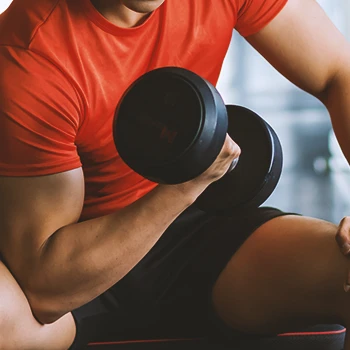
Lifting weights stands out in weight loss by simultaneously building muscle and shedding fat.
Muscle tissue, even at rest, burns more calories than fat, meaning as you build muscle, your body increases its resting fat-burning rate [1].
As a result, your resting metabolic rate rises, and you burn calories each day. The more muscles you have, the higher the metabolism and the faster you lose body fat, according to the WebMD [2].
Adding muscle-building and strength training workouts such as lifting heavy weights can be a game-changer to your weight loss goal.
I’ve seen a huge shift in my clients’ overall performance and body composition once they swapped endless cardio sessions for weights, especially after introducing weight sessions focused on compound movements.
Fat as Fuel for Muscle Building
Food plays a huge role in burning calories. Therefore, you should always consider and count the number of calories you consume.
Lifting weights uses fat calories as the “extra” fuel to build muscle.
From my own experience, weight lifting taps into your body fat, using it as fuel for muscle tissue growth. It uses your body fat as your "surplus calories" [3].
A well-structured nutritional plan is essential in complementing your weight lifting routine for fat loss; this includes focusing on the right balance of macronutrients, timing meals effectively, and choosing foods that fuel muscle growth and enhance fat metabolism.
Benefits of Weight Training Workout

Strength training workouts, especially those based on stop-start weight training exercises, also burn through muscular glycogen, according to the Nutrition Reviews [4].
After refilling the glycogen with food after working out, the blood sugar doesn’t hang around much, and with time, your body’s insulin sensitivity improves [5].
Your body will improve at using the blood sugar for muscle energy rather than converting it into fat.
"Obviously, burning more calories throughout the day, in conjunction with a balanced diet, will boost your fat loss."
- Wendy Batts, Master Instructor at National Academy of Sports Medicine
Lastly, the total calorie burn is much higher than with cardio workouts. See, after cardio, the heart rate and metabolism resume normalcy in a few hours, according to the Journal of Applied Physiology [6].
But if you jack up your weights, you’ll enjoy the effects of the workout even much later after you’re done (afterburn) [7].
Think of it as getting a two-for-one benefit from your workouts. The added muscle from heavy resistance training not only aids in fat loss but also helps prevent fat regain by using more calories for muscle maintenance instead of fat storage.
In addition to its physical benefits, weight lifting significantly enhances mental well-being, contributing to fat loss by improving mood, boosting self-esteem, and reducing stress levels, all of which are crucial for a sustainable fitness journey.
Related Article: How Many Calories You Use Lifting Weights
3 Tips to Use Weight Workouts for Effective Fat Loss

I'll suggest a couple of tips to maximize your weight loss program. These tips have been instrumental in my clients’ fat loss journey.
1. Combine Light and Heavy Lifting
Heavy weightlifting is great for post-workout calorie burn, while higher reps with lighter weights boost calorie burn during the workout.
I guide my clients to mix it up: alternating between 10-20 reps with lighter weights and 3-7 reps with heavier weights.
A balanced approach could be four sets per exercise, starting with two sets of heavy, low-rep lifts followed by two sets of lighter, high-rep ones.
2. Give Preference to Compound Lifts
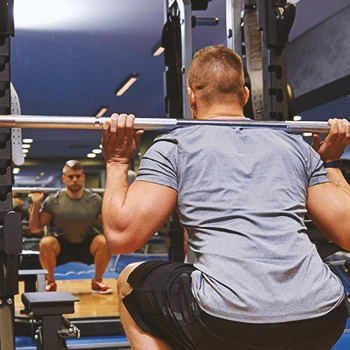
Compound workouts are highly effective for fat loss, generating substantial responses due to their increased demand.
This not only accelerates fitness gains but also aids in weight loss. For instance, squats engage multiple muscles and burn more fat compared to isolated exercises like lateral raises.
Prioritizing complex exercises in your training provides more muscle-building value for your efforts at the gym, based on my experience.
According to the Asian Journal of Sports Medicine, compound exercises have been demonstrated to promote power and lean muscle mass growth faster than isolation workouts [8].
3. Keeping Your Lifting Sessions Short
It’s easy to assume that longer lifting sessions will burn more fat. But that’s not the truth.
Instead, I suggest you switch your mentality from counting the number of hours spent in the gym to focus on the intensity of your workouts [9].
For example, a genuine and intense workout shouldn’t be longer than 45 minutes. If you’re doing everything correctly, you’re likely to get fatigued in a short time, based on my experience.
FAQs
Does Lifting Weights Burn Belly Fat?
Yes, lifting weights burns belly fat because muscle tissue can burn more calories than fat tissue.
What Weight Exercise Burns the Most Fat?
Weight exercises that burn the most fat are deadlifts, military presses, lunges, and squats.
Can You Lose Fat Just by Lifting Weights, No Cardio?
Yes, you can lose weight by lifting lighter weights, no cardio. Muscle tissue burns more calories than fat tissue; therefore, building muscle mass can burn more calories.
How Often Should I Lift Weights to Lose Weight?
You should lift weights 2 to 3 days to lose weight. This will also depend on how many calories you consume on a daily basis.
References:
- https://www.ncbi.nlm.nih.gov/pmc/articles/PMC3661116/
- https://www.webmd.com/obesity/features/8-ways-to-burn-calories-and-fight-fat
- https://www.healthline.com/health/fitness/how-to-gain-muscle
- https://www.ncbi.nlm.nih.gov/pmc/articles/PMC6019055/
- https://www.medicalnewstoday.com/articles/323529
- https://www.ncbi.nlm.nih.gov/pmc/articles/PMC5407206/
- https://www.healthline.com/health/fitness-exercise/afterburn-effect-workouts
- https://www.ncbi.nlm.nih.gov/pmc/articles/PMC4592763/
- https://www.healthdigest.com/444716/why-long-workouts-arent-always-better/
About The Author
You May Also Like

